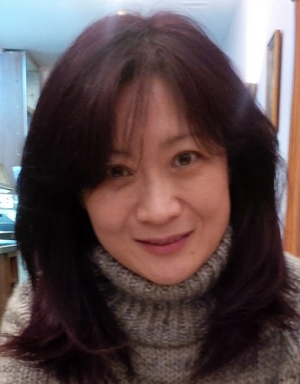Letter from Switzerland

Switzerland's first voting in 2021 was held on the first Sunday of March, when over 50% of qualified voters decided to ban Muslim women from covering their faces in public places. Before the vote, the Swiss far-right party and the Swiss People's Party (SVP), which proposed the initiative, put up posters across the country with a Muslim woman whose face was covered by burka; we only saw her angry and fierce eyes. "Stop Extremists!" was the main message that SVP delivered to the public.
The poster caused a lot of controversy and some non-SVP supporters put angry words on the posters to denounce the SVP. The SVP, which often create controversial publicities, then offered a small reward to anyone who would report them.
I asked some of my Swiss friends about their reactions to the poster. They expressed different views. Some told me it was the usual extreme propaganda tactic of the SVP and nothing could be done to deal with the extreme message. Some believed that 'too much' was even not enough to describe SVP's offensive approaches to Muslims. I said such content would not be seen in the UK and would not be acceptable to the public.
In fact, every canton or major city in Switzerland has an Integration Office for newcomers from different countries to learn about local issues. There are welcome receptions organised by the municipalities after they registered their residence. The receptions offer delicious Swiss chocolates, famous Swiss cheeses and local red and white wines. In Zurich, for example, the city government normally organises a one-hour walking tour of the old town to learn more about the history of Zurich. The staff of the integration office can conduct a presentation about Switzerland and Zurich in at least 4 different languages.

After the formal introduction, attendees may exchange contact information and make new friends. However, it seems that this kind of helpful welcome activities may not extend into the communities and local neighbourhoods.
According to annual surveys delivered by InterNations and Expat Insider that target foreigners who live around the world, Switzerland always comes in one of the top ten positions regarding quality of life. However, Switzerland has always been near the bottom when it comes to acceptance and integration. The lack of local acceptance has always been the biggest obstacle to foreigners' integration into Swiss life.
There is an argument that language is the major problem but I hold a totally different point of view.
For example, Taiwan, Mexico and Vietnam are often ranked among the top three countries in the world as the most open and friendly to foreigners and expatriates. It is also easy for them to integrate into the societies of these countries. Therefore, language is not necessarily the absolute barrier to integration. It is the overall environment, the legal system, human factors, education and long-term innovative communication.
Although there are issues of prejudice and discrimination in the UK, there are laws in place against discrimination on the basis of race, colours, gender, sexuality and religion as well as physical and mental disabilities. For me, the Chinese Liberal Democrats have been the biggest contributor to my ability to integrate into British life quickly and easily. Importantly, I would like to express my deepest gratitude to Mrs Merlene Emerson for her guidance and assistance.
I met Merlene at an event with Prince Andrew and Sir David Tang. She opened her welcoming arms to me with her sunny face and cheerful voice. She often involved me in British and Chinese communities' activities. From promoting Chinese participation in politics, consultation meetings of ethnic minority groups in the House of Commons, briefings about policing activities with the Metropolitan Police to other political and non-political activities in the UK.
Through those engagements, I learnt about the development and values of British politics and that we have to work together to make improvements. In particular, my friends from the Chinese LibDems, Linda Chung, Philp Ling and others, demonstrated to the local communities that everyone has to learn how to integrate and contribute to society. Even so, there is some way to go for full integration.
In the UK, I appreciate the approach of 'Have Your Say'. Whether you are a British citizen or not, everyone has the right to give an opinion on how to make improvements to build a fairer society. However, in Switzerland, when I asked if there were any opportunities for foreigners to get involved in politics or community activities, I was very disappointed that foreigners are generally not accepted to participate in political activities. You have first to be a voter in order to qualify.
Because of the Chinese LibDems, I have learnt that the true value of democracy and freedom depends on everyone's efforts, regardless of whether you are a citizen or a foreigner. We will be motivated to make more of a contribution if we are accepted.
As they say 'When in Rome, do as the Romans do', hence I agree that we have to respect the local culture and values. But the world is always changing, Rome has changed, and Romans are not the same as in ancient history. We have to refresh our minds and thinking with time, to make innovations and benefit from our cultural differences. As a political party we will have to move from distribution of the traditional street leaflets and rely more on social media and digitised messages. At the same time, I believe some basic values will never change: diversity, respect and equality. They will always be important in our lives.
[The writer is originally from Taiwan, and has lived in both the UK and Switzerland. She was an active member of the CLD executive when she was working in the UK.]
